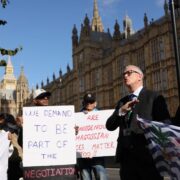Generational Aspects of Inclusive Growth
Author/Editor:
Benedicte Baduel ; Asel Isakova ; Anna Ter-Martirosyan
Publication Date:
March 12, 2021
Electronic Access:
Free Download. Use the free Adobe Acrobat Reader to view this PDF file
Disclaimer: IMF Working Papers describe research in progress by the author(s) and are published to elicit comments and to encourage debate. The views expressed in IMF Working Papers are those of the author(s) and do not necessarily represent the views of the IMF, its Executive Board, or IMF management.
Summary:
Sharing economic benefits equitably across all segments of society includes addressing the specific challenges of different generations. At present, youth and elderly are particularly vulnerable to poverty relative to adults in their middle years. Broad-based policies should aim to foster youth integration into the labor market and ensure adequate income and health care support for the elderly. Turning to the intergenerational dimension, everyone should have the same chances in life, regardless of their family background. Policies that promote social mobility include improving access to high-quality care and education starting from a very early age, supporting lifelong learning, effective social protection schemes, and investing in infrastructure and other services to reduce spatial segregation.











Comments